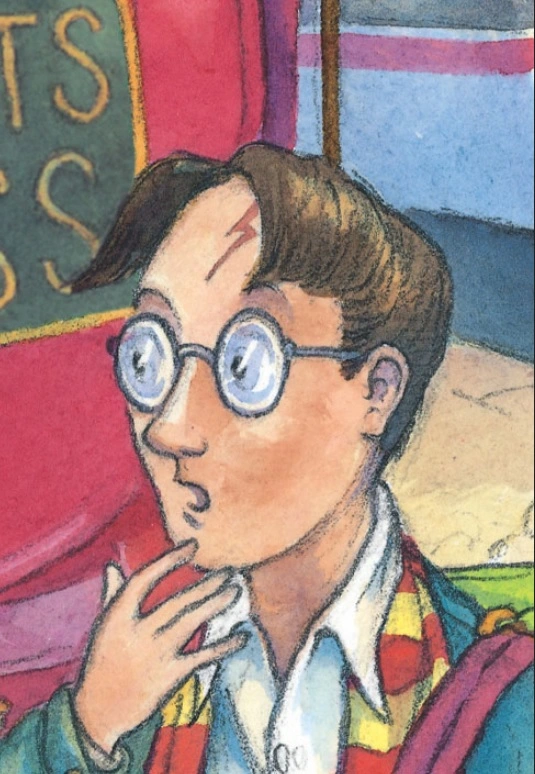i mean, it’s a british series set in britian by a british author with british characters speaking british english. why would they be saying ‘parking lot’ instead of ‘car park’? that doesn’t make sense!
and even at 8 i don’t think i was so stupid that i couldn’t figure out what an ice lolly was from context clues. furthermore, context clues are important for children to learn, not to mention dialects in general.
plus it seemed very inconsistent? some of the obvious slang they’d change but they’d leave in stuff like ‘trainers’ or ‘snogging’ in the US versions which confused me even more as a child because i was used to being spoon-fed the US vocab – which doesn’t immerse you in the setting as much and get you used to hearing the slightly different words as often.


That makes no sense. They put in more work to sell the same amount of copies? Why would they pay money to have someone change slang throughout the book as a way of earning more? Everyone knows the books are based in England, so why wouldnt they have English phrasing?
Americans hardly read as it is so this further muddles your cloudy idea.
Americans familiarity with common UK language and expressions was more limited at the time than now. Especially amongst the target market of children/young teens.
There wasn’t much internet usage, especially videos. The only access to common UK language in the US would be UK reality TV shows. Most of which would have a US equivalent. I don’t think UK reality shows broke into the US without being a remake till the Great British Bake off.
Most of the British people an America would see in the media would be speaking a more formal and more Atlantic version of English.
Even today some American expectations of English people is skewed. It’s noticeable when an English person is hired to play an English person on an American show. They’ll put on a parody of an English accent.
James Cordon is a strong example of this, he was a notable actor for quite some time in the UK. It wasn’t till he moved to America his accent got more ‘English’.